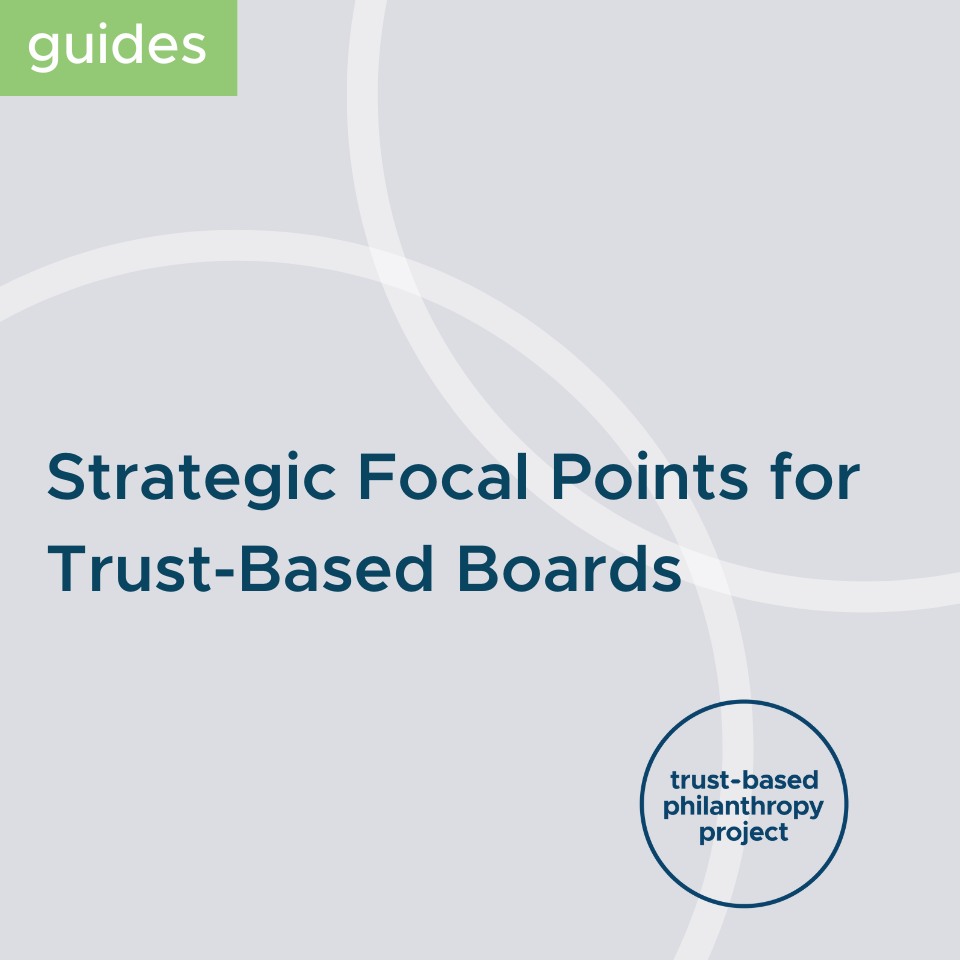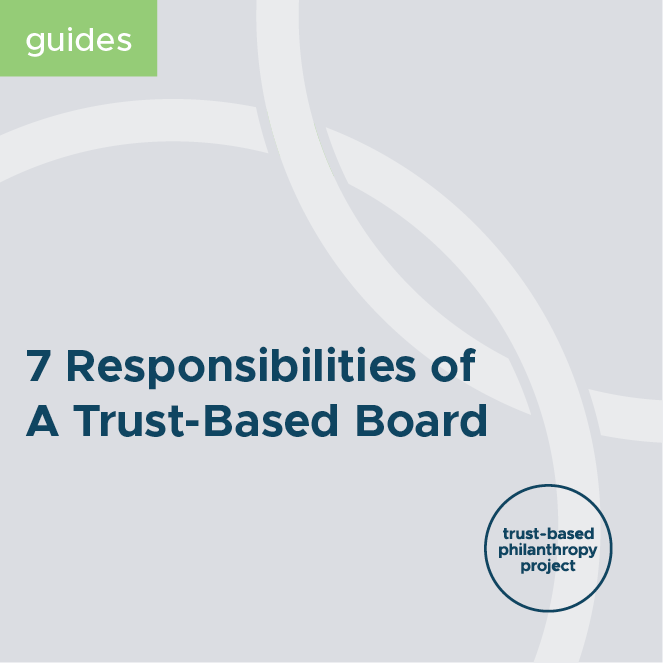
Trust-Based Leadership
Trust-based leaders embody values of humility, equity, and transparency—alongside a willingness to give up some of their power in service of the organization’s greater purpose.
The 4 Dimensions of TBP: Practices, Culture, Structure, and Leadership
Trust-based philanthropy is a holistic approach that has implications for a grantmaking institution's practices, culture, structures, and leadership. Learn more.
Trust-based leaders are collaborative and facilitative. They prioritize the well-being and development of the people doing the “work,” while keeping an eye on the big-picture organizational vision and purpose. They are focused on lifting up the whole team and building trust internally, rather than consolidating attention, power, and influence at the executive or trustee level.
An organization’s leadership team plays a key role in upholding and reinforcing values and culture—not just by what is said, but what is done. It is virtually impossible for organizations to embody a fully trust-based approach without buy-in and modeling from leadership.
Steps you can take:
Be self-aware, listen, and be transparent. Think critically about how you are showing up with staff, grantee partners, and the community. Consider how you have benefitted from regular access to power and privilege; how you may be unintentionally perpetuating power differentials or institutional racism. Be as transparent as possible in communications, plans, and assumptions—and don’t shy away from admitting your mistakes. Be clear when there is room for input from others. Practice compassion and non-extractiveness.
Build a strong support system. Leaders serve as trusted guides for organizations to navigate through change, uncertainty, and growth. In order to do this well, leaders need a strong support system, opportunities to cultivate purpose and restoration, and a commitment to continuous learning.
Acknowledge power and race—and be willing to take action. Adopt an attitude where continuously evaluating power and privilege is part of your daily work. Be willing to see where racism, sexism, homophobia, and ableism are present in your organization’s culture and take principled action to undo it.
Redefine “risk” and “failure.” Acknowledge that foundations have far more “risk capital” to spare than the organizations you support, so be willing to take bold action. Explore the spaces and places that make you uncomfortable, and challenge yourself. Invite staff to see “failure” not as a bad thing, but as an opportunity to learn, pivot, and grow.
Coach rather than control. Whether you’re a trustee working with the CEO, or an ED interacting with staff, cultivate a coaching stance to bring out the best in your colleagues. Your job is to uplift, guide, and support your team in contributing to your mission and vision. This means soliciting their feedback, getting curious, and inviting them to reflect on what they’re learning.
Invite collaborative culture-shaping. Be creative in building a sense of agency and inclusion by opening opportunities for collective culture-building. Invite teams to shape, guide, inform, or reimagine various aspects of your culture — from small acts like choosing the welcome music for Zoom meetings, to larger considerations like paid holidays and staff retreats.







